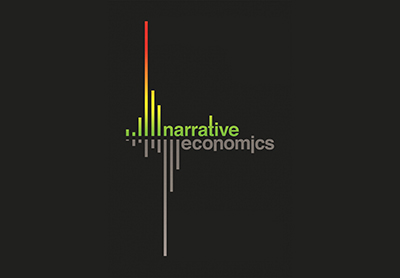The economy is powered by stories. That’s the thesis of Nobel economics laureate Robert Shiller’s Narrative Economics: How Stories Go Viral and Drive Major Economic Events. If you haven’t yet read it, this 2019 book is an accessible and thought-provoking look at the power of stories to shape the world.

The impact of stories may seem obvious to folks who work in communication, but economics has for centuries ignored the role of stories and, really, anything having to do with emotion. Economies are incredibly complex, so economists build simplified models of an economy as a way to understand how real economies work. Simplifying means leaving some things out, and economic models leave out emotion, assuming instead that people make decisions using data and intellect alone.
Shiller’s point is simple: that’s not how real economies work. He looks at historical and contemporary narratives about confidence in banks, the morality of corporations, trends in housing or stock prices, and other aspects of the economy. And he finds that changes in the popularity of these narratives predict seismic economic shifts, like recessions and depressions, price bubbles, and increased inflation.
I should note that there is not one equation in the book, and no calculus is required to understand its very straightforward argument. This is an accessible – dare I say beachy – read that will reinforce your appreciation for the power of narrative.
